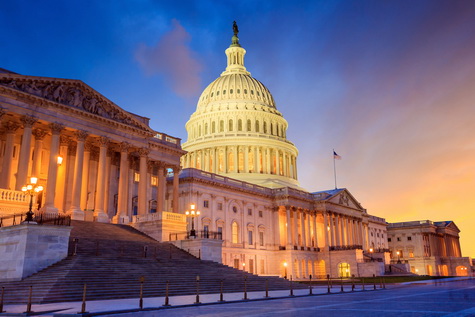
The Real Estate Roundtable submitted comments on April 6 regarding a “model” law developed for cities, counties, and states considering building “performance standards” for energy consumption and GHG emissions.
Building Performance Standards (BPS):
- The model ordinance has been developed by the Institute for Market Transformation (IMT) – a D.C.-based policy organization that coordinates with state and local bodies on energy- and climate-related regulations. (IMT’s model ordinance, BPS resources, and blog post, Creating Real-Estate Friendly Building Performance Standards, Jan 21, 2021)
- A task force of The Roundtable’s Sustainability Policy Advisory Committee (SPAC) convened to respond to IMT’s proposed law. According to the letter, a “whole-of-economy approach must drive businesses to take bolder actions within their control to minimize their carbon footprints while operating profitably, meeting investors’ demands, and equitably creating jobs in their communities.”
- “Real estate developers, owners, managers, and financiers – along with building tenants, occupants, public buildings, and … the power supply, transportation, and manufacturing sectors – all have shared obligations to address climate change,” The Roundtable writes.
Roundtable Comments — Talking Points:

- BPS laws must rely on consistent standards, methods, and data that reflect the best available government and industry practices. Uniformity is critical to avoid a divergent “patchwork” of state and local laws that would unduly complicate building owners’ compliance and regulators’ enforcement.
- No BPS law should mandate building owners to reduce emissions from sources beyond their control. Owners should not be saddled with responsibilities to “clean-up” the electric grid, district thermal systems, and other community-wide power infrastructure that they do not manage or control.
- Any BPS law should include financial assistance to help all regulated owners defray the significant capital expenses needed to bring buildings into compliance.
- BPS laws should encourage investments in existing buildings and allocate compliance burdens based on tenants’ and occupants’ energy usage.
- The least efficient buildings and communities are frequently the most distressed buildings and communities. Added regulatory costs from BPS mandates could disproportionately affect housing affordability and economically distressed neighborhoods on the “frontlines” of climate change.
Why It Matters:

- “RER members must engage vigorously on climate and energy issues,” said SPAC Chair Anthony E. Malkin, above left, (Chairman, President and CEO, Empire State Realty Trust). “We have the facts, the practice, and the experience to inform the thinking of cities, states, federal officials, and NGOs as they develop goals to reduce greenhouse gas emissions and stride toward a clean energy economy. The field on which the game is played, and the rules themselves, are in constant flux. RER member engagement has never been more important to offer policy recommendations that create green jobs while modernizing U.S. buildings and power infrastructure.”
- “It is critical for Roundtable members to have a seat at the table as cities and states consider laws that set efficiency and emissions standards on buildings,” said SPAC Vice Chair, Daniel Egan, above right, (Senior Vice President, Vornado Realty Trust). “Policy makers must design climate programs that encourage owners to invest in their buildings to improve performance, while incentivizing our industry with market-based solutions that can help increase the nation’s supply of clean, renewable energy.”
State and local jurisdictions have been marching forward with regulatory mandates on buildings to address energy and GHG emissions, which prompted The Roundtable to comment on IMT’s model ordinance. While Democrats in the House of Representatives have offered omnibus climate legislation with provisions that would affect U.S. real estate (see the CLEAN Future Act, H.R. 1512), it faces an uphill battle in the Senate. (Roundtable Weekly, March 5)
# # #













